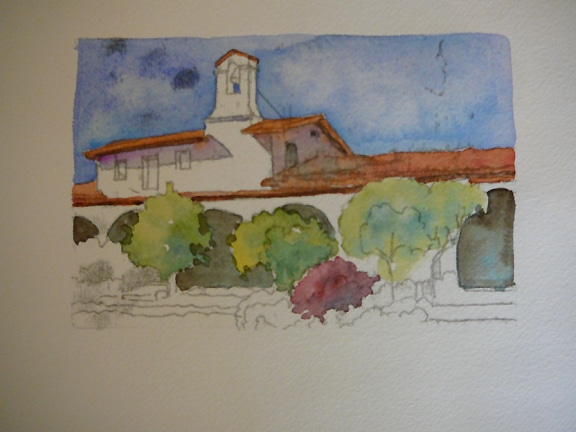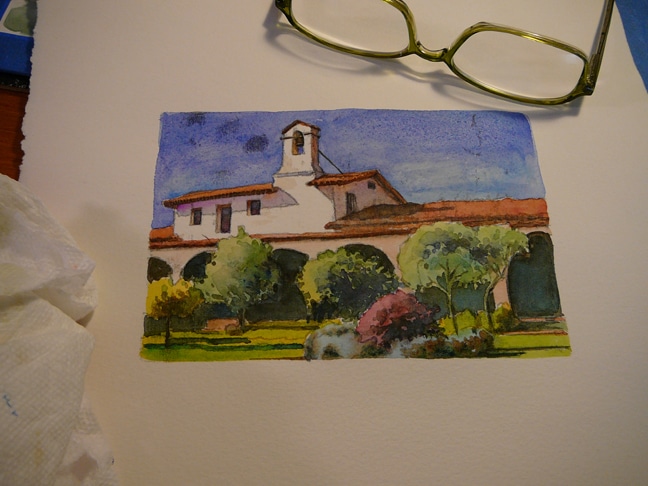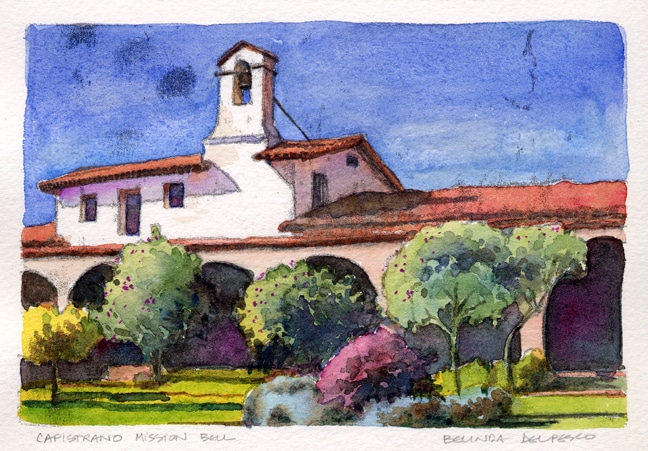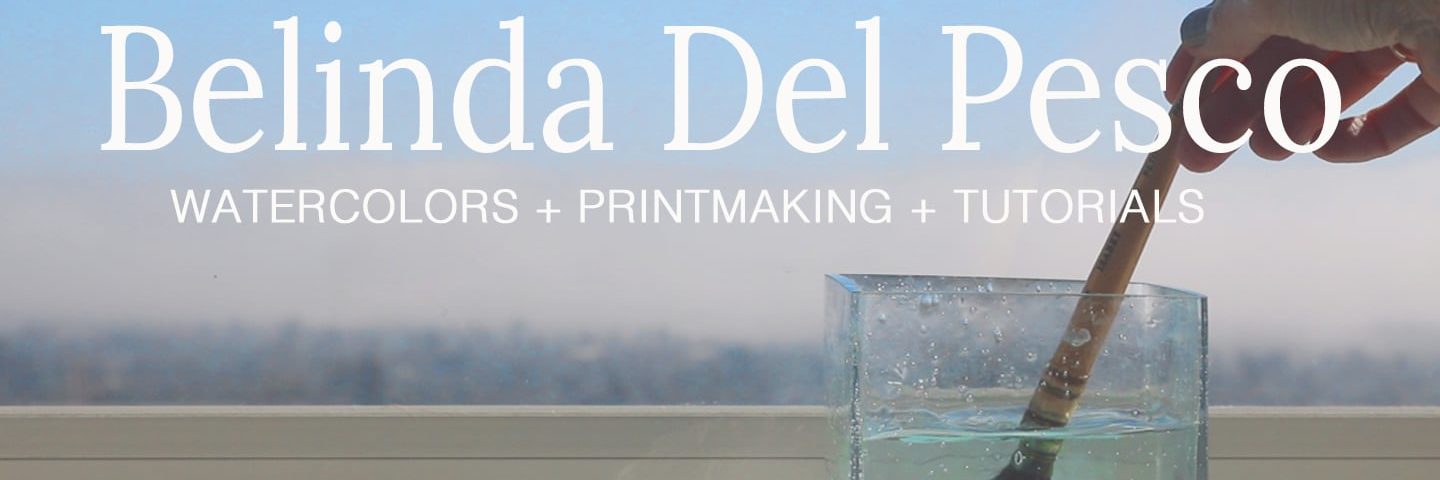Trace Monotype Landscape with Watercolors
This is a trace monotype of the San Juan Capistrano bell tower, from a photo taken inside the mission courtyard. Painting the sketchy, loosely inked lines from a trace monotype – also known as a drawing transfer monotype – is a ton of fun.

Making a trace Monotype Print
If you’re new to trace monotype prints, I hope you’ll give them a try, since you don’t need a press, there’s nothing to carve, and your printmaking plate can be a sheet of plexiglass, or a cut-out from a plastic clamshell produce container. (Like this.)

Mixing Printmaking and Watercolors
The ink lines from the trace monotype are about the same value as pencil graphite, but they have a dotted quality to them from the tooth in the printmaking paper (Arches Cover).
Since the printmaking ink dries permanently, if you leave your watercolors relatively transparent, your line-work will show underneath the pigments.
Take a look at the playlist of Monotype tutorials on my Youtube Channel for some tips. And remember to have fun with it. Experiment and play, instead of expecting masterful works on your first try. Like any new medium, you have to date for a little while before you can fall in love. 🙂
Thanks for stopping by and I’ll see you in the next post!
Belinda

P.S. Be sure to watch Dan Tirel’s Monotype videos on his YouTube channel too.
Monotype Transfer Drawing Print Supply List
Here are the basic supplies you'll need to create a monotype transfer drawing print without a press. These versatile prints can be left as standalone original works of art, or you can add color with all sorts of pigments like watercolors, gouache, colored pencils, pastels and wax crayons.
Caligo Safe Wash Etching Ink
This ink looks and feels and prints similar to traditional oil-based etching ink, but it washes up with soap and water. Solvents aren't necessary. The ink stays wet on the brayer and roll-out slab for a good, long time. Note: Don't use watercolor paper with sizing in it, as that will block absorption and slow the ink drying time. See paper recommendations in this list.
Inking Plate
Four 12x12 Clear Acrylic Sheets
These shiny, clear sheets of plastic are *perfect* for rolling out ink on all your printmaking projects. If you're printing in multiple colors, you can roll for colors - one per sheet - or 8 colors if you use the right and left sides of each sheet. You can also use these to print dark field and light field monotypes. The bonus for monotype prints is that the plates are totally clear, so you can trace your image in printmaking inks for better accuracy.
Printmaking Paper
This is the paper I printed my monotype transfer drawing on, and it works beautifully for both allowing the printmaking ink to dry, and for painting with watercolor afterward.
Rubber Gloves
Whenever you're working with pigments, it's wise to wear protection to keep the inks from getting on your skin. The inks I've recommended here are water wash up, but that doesn't mean they're non-toxic. Repeated exposure to paint, inks and modifiers are best done with a good barrier to protect the container we'll be cruising around in all of our lives. When handling ink, wear gloves.
Watercolors
Here is a good starter set for watercolors if you're not experienced with painting your printmaking projects. You'll be able to mix all sorts of new colors from these tubes of basic hues.
Watercolor Brushes
This set will give you plenty of options to add color to your monotype transfer drawings in broad strokes or fine details.
Making Monotypes (book)
If you've never made a monotype print before, this book is a treasure trove of history, approaches, supplies, methods, and ideas. It's out of print, but you can get it used, or at your local library.

You are obviously a master of your muse! I love your work, Belinda! I look in awe of your work every day!